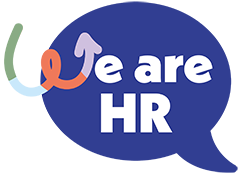Table Of Contents
Introduction
In the fast-paced realm of human resources and recruitment in the United Kingdom, professionals play a crucial role, constituting a mere 1% of the workforce. While their presence might be modest in terms of numbers, the impact is substantial, making them indispensable contributors to organisational success. In this comprehensive guide, we will delve into the diverse facets of the UK’s HR and recruitment industry, exploring areas of specialisation, key graduate employers, the work environment, and the challenges that define the sector.
Exploring Specialisations in HR
The spectrum of opportunities within HR is vast, encompassing various domains to cater to the diverse needs of organizations. Whether embedded in large corporations or contributing to the agility of small and medium-sized enterprises (SMEs), HR professionals may specialise in areas such as employee engagement, relations, employment law, health and safety, industrial relations, learning and development (L&D), payroll and pensions, performance and reward, recruitment and talent management, and strategy and organisation development.
In SMEs, HR practitioners often engage in a broad array of tasks, reflecting the flexibility demanded by the business and their role within the human resources function. Beyond the conventional HR roles, positions may emerge with a focus on L&D, career coaching, or occupational psychology. Notably, some organisations opt for external support, outsourcing HR functions to specialised companies or consultancies.
For those aspiring to specialise in recruitment, avenues are diverse. Large international agencies like Adecco offer global exposure, while smaller independent agencies carve niches in specific sectors such as education or digital. Exploring graduate jobs in recruitment and HR provides insights into the diverse opportunities available in this dynamic industry.
Main Graduate Employers in the UK
Leading organisations across various sectors recognise the importance of nurturing talent in HR. Graduate schemes in HR are offered by prominent employers like Balfour Beatty, Boots, BP, Centrica, Civil Service Fast Stream, DHL, GSK (GlaxoSmithKline), Jaguar Land Rover, KPMG, Lloyds Banking Group, Mitchells & Butlers, Network Rail, NHS, Nestlé, PwC, Rolls-Royce, and Royal Mail Group.
Graduates can also explore opportunities with recruitment consultancies, including Adecco Group, Big Red Recruitment, Cititec, Client Server, Hays, ManpowerGroup, PageGroup, Randstad, REED, and Spencer Ogden. Internships and work placements with a strong HR focus are avenues to gain valuable experience in this competitive field.
The Professional Landscape of HR: Entering the HR and recruitment sector is a journey into a competitive industry marked by strict deadlines and targets. However, it also offers high earning potential, with the average salary for HR professionals standing at £37,428. Additional incentives, such as commissions and bonus schemes, further enhance earning prospects. Salaries for HR officers range from £24,000 to £35,000, while managers can earn between £35,000 and £55,000. Seasoned directors in the field can command salaries exceeding £80,000.
Moreover, the option of self-employment is gaining prominence, especially for those with substantial experience and the right qualifications. The rise of outsourcing has made consulting work increasingly prevalent, providing seasoned professionals with the opportunity to chart their own course.
Challenges in the HR Sector
As the dynamics of the workplace evolve, the HR sector faces distinct challenges. The emergence of hybrid working, a blend of remote and office-based work, necessitates HR professionals to negotiate optimal working practices and navigate the complexities of bringing employees back to the office.
Diversity monitoring is another critical aspect, requiring HR professionals to gather data to foster an inclusive and diverse workforce. Communicating the importance of this data and establishing a culture of trust are pivotal in ensuring accurate and meaningful insights.
Wellbeing takes centre stage on the HR agenda, with a focus on safeguarding the mental health of the workforce. Initiatives encompass encouraging breaks, deploying mental health first aiders, providing training on identifying signs, and offering support.
Conclusion
The UK’s HR and recruitment industry is a dynamic landscape offering diverse opportunities for professionals at various career stages. From specialisation options to the challenges shaping the sector, navigating this intricate field requires a blend of skills, adaptability, and a keen understanding of the evolving workforce landscape. As the industry continues to evolve, HR professionals play a pivotal role in shaping the future of work in the United Kingdom.


